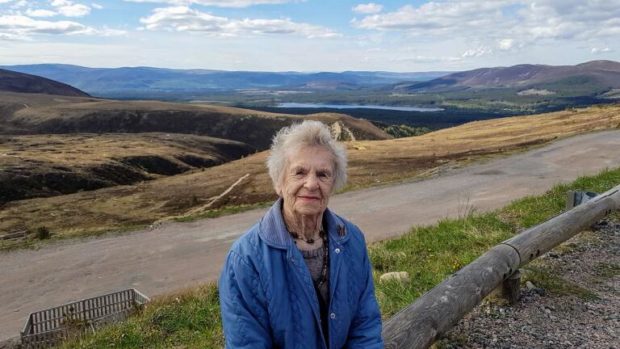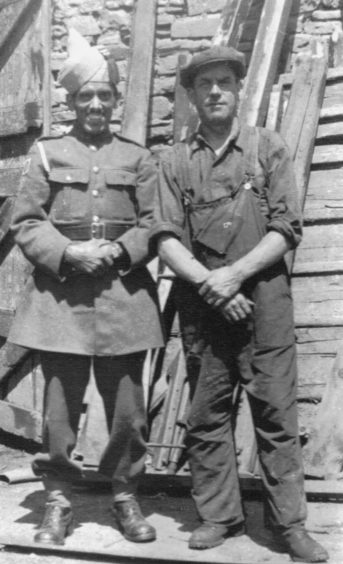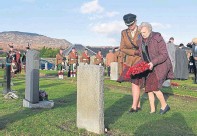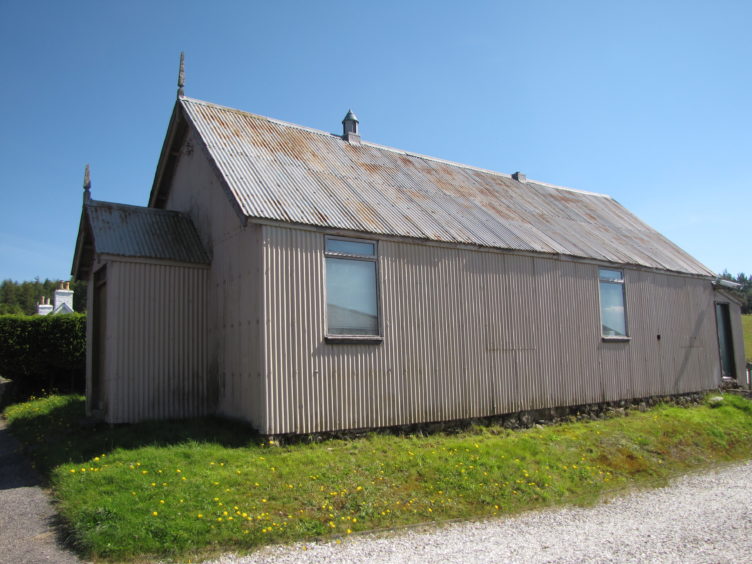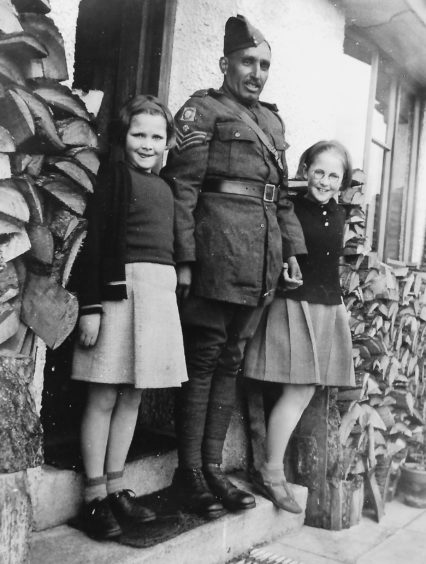She has looked after the graves of Indian soldiers who died during the Second World War for more than 70 years.
And, at the age of 97, Isobel Harling’s dedication to preserving the resting places of the young troops in Kingussie has been commemorated during a special ceremony to celebrate the nonagenarian’s awarding of the British Empire Medal.
Mrs Harling, who served with the Women’s Royal Naval Service during the war, was still in her 20s when she began looking after the nine graves of the men from Force K6, the Muslim troops who played an important role at Dunkirk in 1940 and throughout the rest of the hostilities.
The soldiers, who travelled thousands of miles to assist the Allies, were based across the Highlands, from Golspie and Dornoch to Loch Ewe and Kingussie, and others in their ranks were based in the north-east including in Aberdeen and Ballater.
The Army in Scotland and Royal British Legion Scotland organised a small service on Saturday – which observed social distancing – and was attended by Mrs Harling and her daughter, Gaynol, while being live-streamed on social media.
She lost her own brother during the conflict, when he was shot down over Leuven in Belgium, and believes it is important not to forget those who sacrificed their lives, wherever they might be buried.
She said: “These Indian soldiers came over here from their homes and they gave their lives for us, so it’s only right that we remember them.
”Nobody seemed to care and that bothered me. So when I jumped on my bike and cycled down [to the cemetery in the 1940s], no one knew where I was going.
”The K6 soldiers used to come down into the village and they would come to some of the functions and dances. They were very quiet, very nice and very mannerly.”
The troops’ stories have been highlighted in a new book, The Indian Contingent, by Dr Ghee Bowman who spoke about their contribution to the war effort.
He said: “Dunkirk is known for small ships, for beaches, Stukas and Tommies. But, of the 338,000 men taken off the beaches and surrounding areas, a third were French and 630 were Indian.
”These men were in France because they brought skills and expertise that was unavailable in the British Army at the time. The BEF needed animal transport – mules – to carry supplies to the front line and there were almost zero men with such skills.
”But there were many animal transport companies in the Royal Indian Army Service Corps and these were the soldiers who joined the British forces.
“It’s very sad that the broader Indian involvement in the war seems to have been largely forgotten. Two and a half million men – and 11,000 women – served in the Indian armed forces and they have been called the largest volunteer army in history.”
The graves of those who died are dotted across the Highlands and Islands.
But Mrs Harling has ensured that the men who fell in Kingussie are properly respected and remembered more than 75 years after VE Day.
